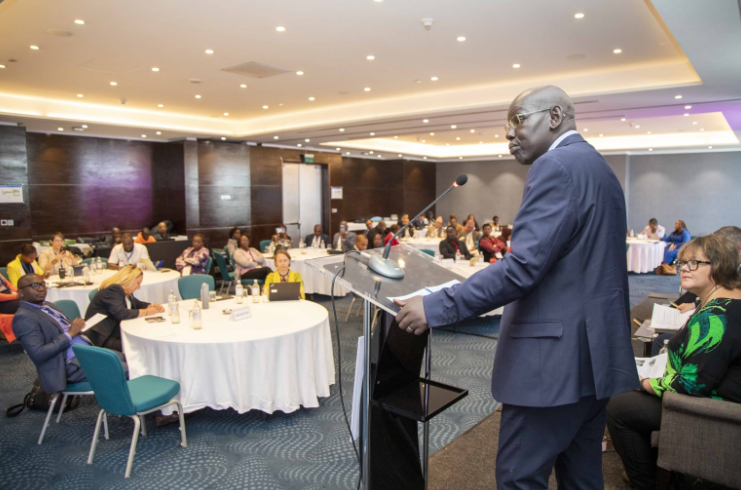Education Principal Secretary Belio Kipsang acknowledged that while there are several initiatives aimed at promoting inclusive education, numerous challenges remain. He noted that enrollment rates for children with disabilities in special needs schools and those from ASAL areas have significantly increased due to the free primary education (FPE) and free day secondary education (FDSE) initiatives.
“While the government and the Ministry continue to put efforts to surmount these challenges, we call upon partners to join us in seeking intervention and address some of the challenges,” he said.
Speaking at the Schools Connect Dialogue 2024 in Nairobi, the PS highlighted inadequate infrastructure, a shortage of trained teachers, societal stigma, and low retention rates in marginalized areas as the main obstacles. He recognized the ongoing support from various partners and appealed for assistance in training more teachers.
“This is in addition to equipping them with the necessary skills to be able to handle the diverse needs of all learners. We need to engage and involve local communities by creating awareness programmes that aim to reduce stigma and promote acceptance,” he added.
Kipsang emphasized that adequate resources are required to improve facilities and support all services for inclusive education. The dialogue, titled “Inclusion and Belonging in Schools,” was organized by the British Council, with representatives from the British Council, UNICEF, and other senior education officials in attendance.
In a statement, the British Council expressed its commitment to continuing support for students and educators by ensuring access to high-quality education, particularly in multilingual and under-resourced contexts. “We work to empower young people with the skills needed for education and employment while also helping teachers and education leaders grow professionally,” it read in part.
UNICEF Country Director and Deputy Regional Director for Eastern and Southern Africa (ESARO) Lieke van de Wield echoed these sentiments, stating they will continue to work with all stakeholders to build education systems that are inclusive, equitable, and accessible to all.



